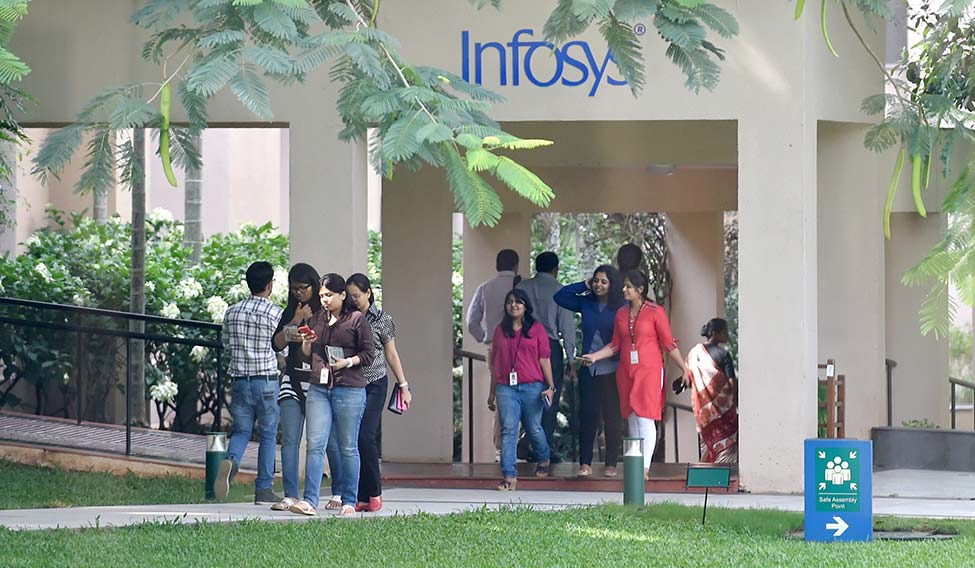President Donald Trump’s ‘America first’ inaugural speech has led the Indian IT industry to adopt a wait and watch approach. As the industry gets most of its revenues from the United States, any restrictions on future outsourcing and H1B visas will have an adverse effect; it is already reeling under margin and pricing pressures. Perhaps, that’s why several Indian IT firms in the US have started hiring locally.
Experts say the impact of Trump’s decisions, which may take a year or two to be felt, could be more on the larger players like TCS and Infosys. “Of the total number of people working for TCS in the US, around 30 per cent are locals. For Infosys, it is around 35 per cent. HCL Technologies is a little comfortably placed as around 50 per cent of its employees in the US are local Americans. TCS and Infosys will need to hire more Americans for its US operations and bear the differential costs, as many of these workers come at a higher price than the Indians,” said Amit Chandra, research analyst (IT) at HDFC Securities. He, however, didn’t see any immediate increase in the H1B visa pricing as it was increased only last year.
But there could be restrictions in the future on some American firms to hire or outsource work to Indian workers, said Kris Lakshmikanth of Head Hunters India, a recruitment firm. “If that happens, it will be challenging for the Indian IT industry. As such the deal sizes from different US companies are becoming smaller and Indian IT services companies are utilising their bench strengths fully in order to cater to small-size projects, and have put restrictions on new hiring,” he said. IT firms have started hiring locally from American campuses, he added.
The biggest challenge for IT services companies in the US, however, is finding talented workforce. “There is sometimes dearth of people in the technology field in the US. Indian IT workers on H1B visas are hardworking and more flexible when compared to local Americans,” said Chandra. “Indians are also ready to shift within the US, say, from the west coast to the east coast, which is not the case with local American workers.”
Nonetheless, Indian companies will need to train the American workforce to improve their skill sets, said Lakshmikanth. And, it could in a way help the firms. “By hiring the local workforce in the US, many Indian IT services companies are reducing their dependence on H1B visa or any other visa-related issues,” said Sarabjit Kaur Nangra, vice president of research (IT) at Angel Broking, Mumbai.
According to Alok Shende of Mumbai-based Ascentius Consulting, though there will be anxiety on part of some large Indian IT players in the short term, everything will be back to normal in the medium and long term. “Despite the Trump pledge, there will be lobbying by many large companies in the US against any move to restrict outsourcing,” said Shende. “Indian IT industry bodies such as Nasscom are already lobbying in favour of the Indian IT services companies. I feel that the Indian IT industry will be more affected by the slowdown in the global economy and lower technology demand than by the Trump effect.”
But as Nangra said, “It is very premature to say that the Trump factor will have any negative effect on the Indian IT industry. We must wait and watch Trump’s next move.”







